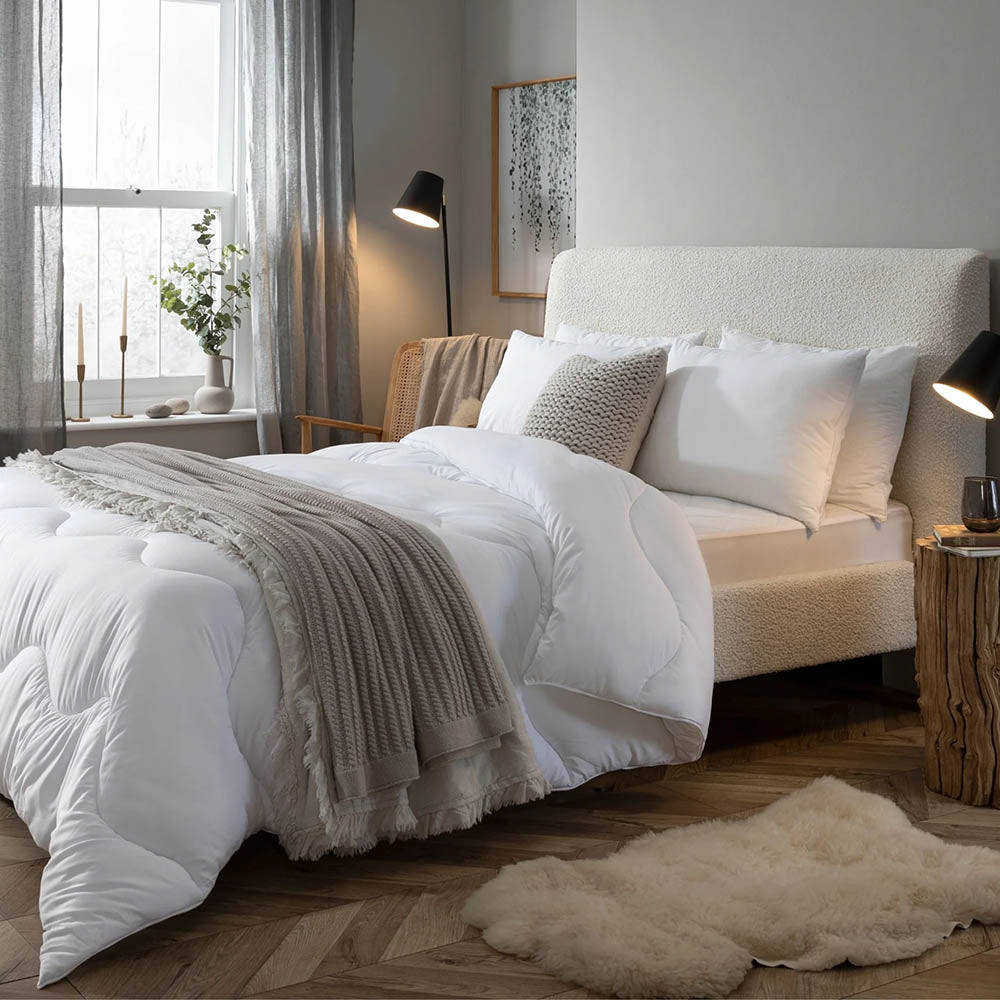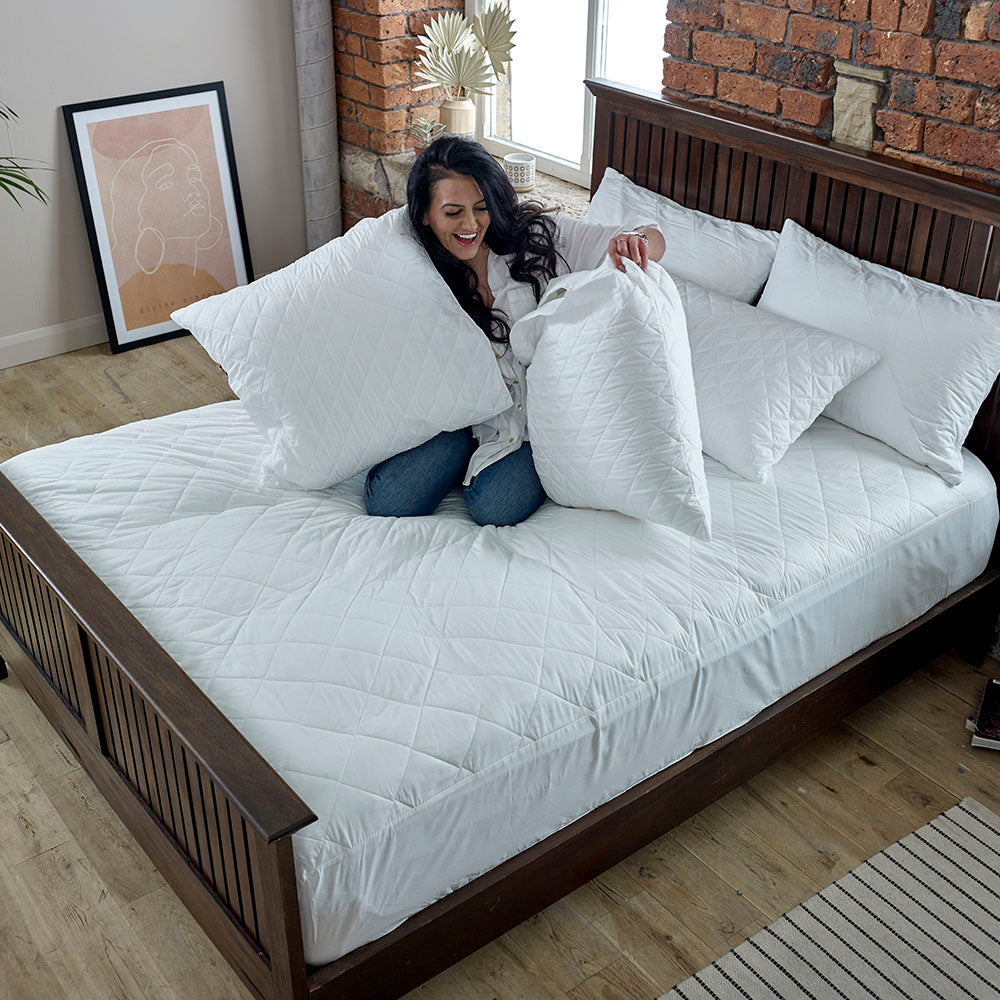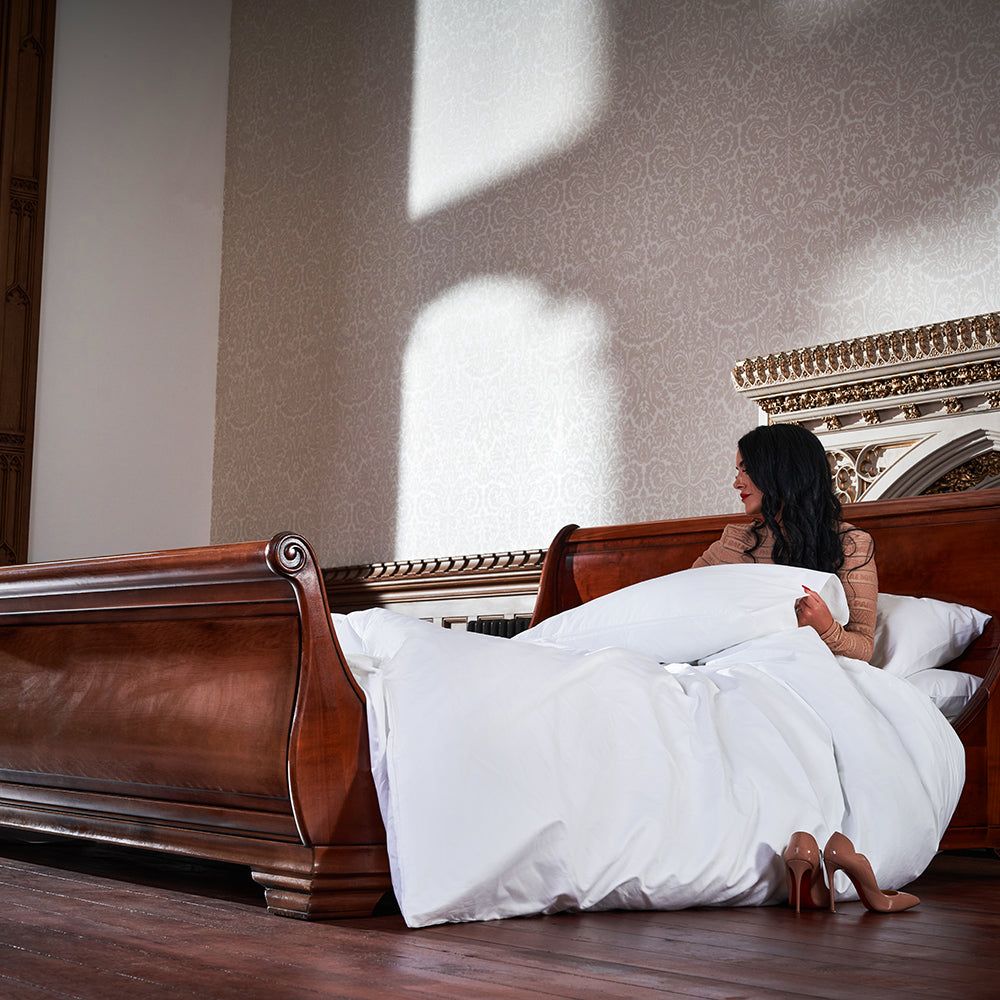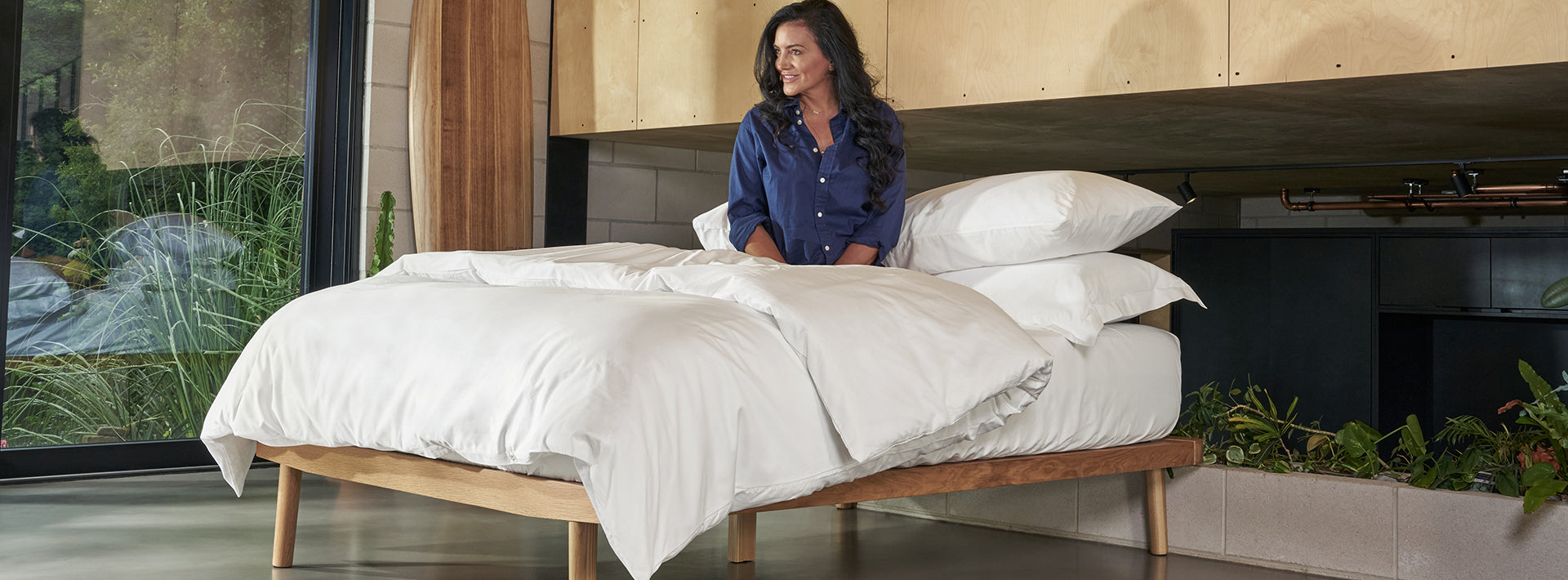ULTRAWASH
DUVETS & PILLOWS
DUVETS & PILLOWS
Are you 18 years old or older?
Sorry, the content of this store can't be seen by a younger audience. Come back when you're older.








Though we did not set out to become an eco company, we do everything we can to reduce our impact on the planet. From the
materials used to make our bedding (organic cotton, BCI cotton, bamboo, eucalyptus, or recycled materials) to the location of our production (50% of our bedding is made right here in the UK / 50% in Europe), we strive to minimise the effect that Linen Cupboard has on the environment.
Luxury bedding in UK, Euro, US & bespoke specialist sizing.


































